
Adventurous London-based property developer, who has taken 18 years to ride out his claim, in an entertaining interview
It isn’t unusual for a very wealthy man who grew up in a racing family to invigorate the onset of his middle-aged years by investing a considerable chunk of his riches in a string of steeplechasers. So far, so conventional. The difference of David Maxwell is that he rides them himself.
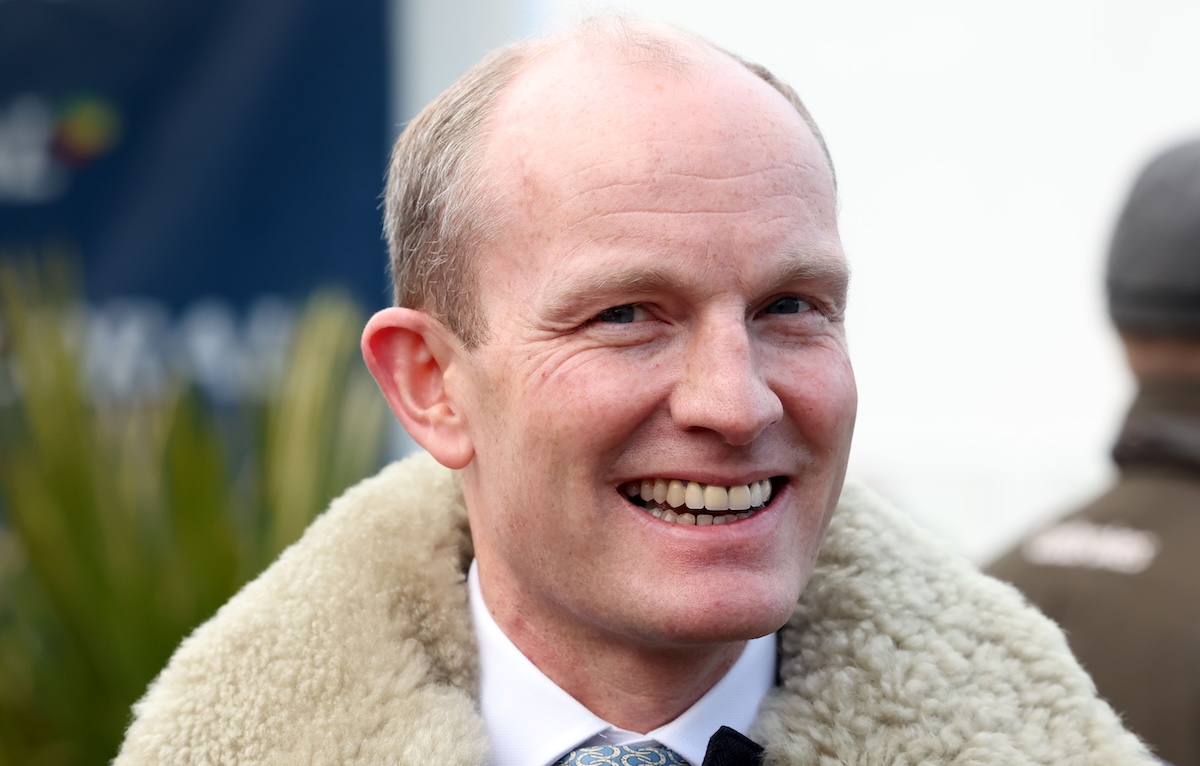 Maxwell is a throwback, an amateur jockey in a very professional industry, a jaunty manifestation of that sepia-tinged Corinthian spirit that once characterised the sport of jump racing.
Maxwell is a throwback, an amateur jockey in a very professional industry, a jaunty manifestation of that sepia-tinged Corinthian spirit that once characterised the sport of jump racing.
At the venerable – in this arena at least – age of 46 the London-based property developer makes his millions in the morning and then, as though he were Clark Kent slipping swiftly into a phone booth, changes into silks and breeches to ride his own horses in the afternoon.
He isn’t doing it for the money; there isn’t that much of it in jump racing and he doesn’t need it anyway. Maxwell is doing it for the liberation, for the thrill, for something money can’t buy. The old axiom of the bumper-sticker – ‘Amateurs do it for Love’ – is what keeps the boyish Maxwell in the saddle.
“There is absolutely nothing better than a really good three-mile chaser,” he says, almost reverentially. “That’s a proper racehorse, a thing of beauty. Once you have ridden over fences like that you can’t go back to other forms of sport with horses.”
Afternoon delight
Maxwell may not always take himself entirely seriously, recognising the essential frothiness of his afternoon delight, but there is nothing dilettante about his approach to his avocation.
He works hard at every aspect of his play, owns 20 or so horses spread across seven or eight trainers, employs shrewd operators in France and Ireland to source new acquisitions, and is as inflexible with himself in regard to the physical demands of race-riding as any Hall of Fame jockey.
“I choose my trainers and then I leave them alone,” he says. “I’m a hands-off owner, really, I don’t get too involved. They’re the boss.
“I do ride out in the mornings but only now and again; there are only so many hours in the day and something has to give. I have a family, I have work, I have races to ride in, so sometimes the first time I sit on one of my horses is at the racecourse.
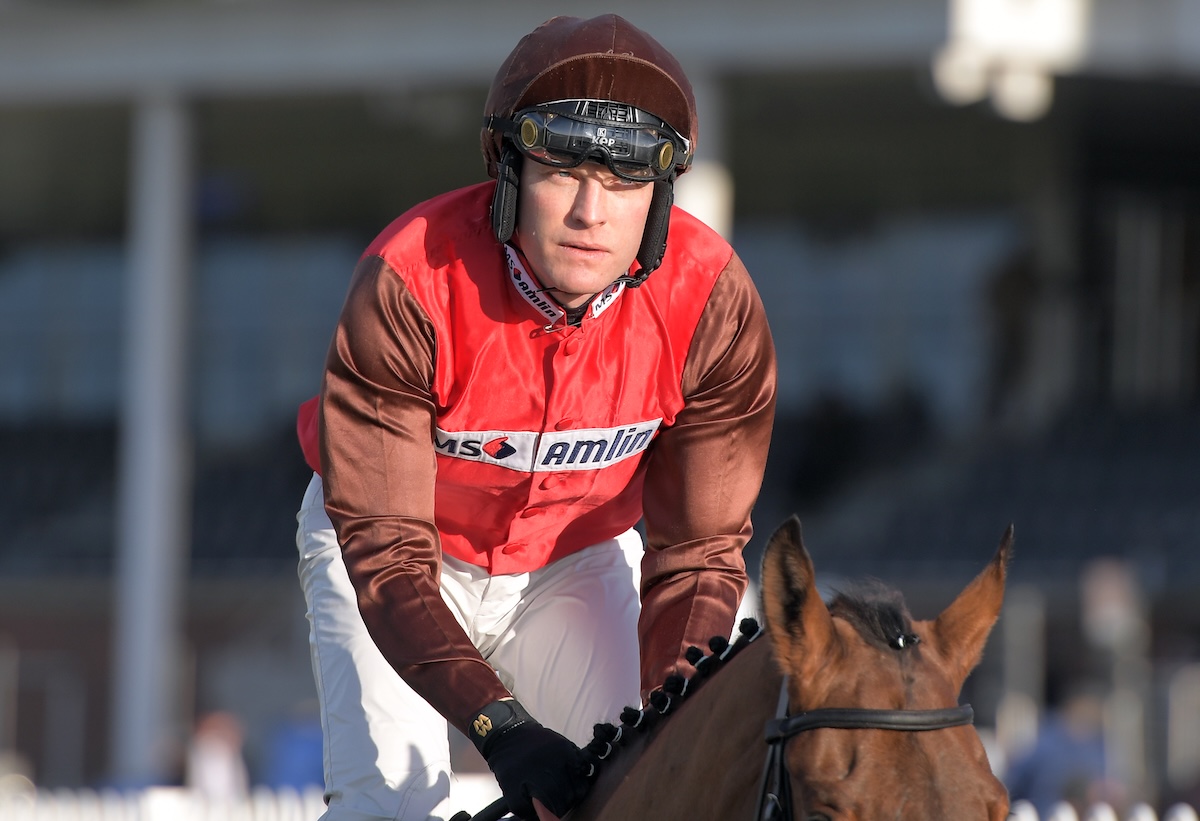 “Weight? It’s okay.” Maxwell frequently rides at nearer ten stone than 11st.
“Weight? It’s okay.” Maxwell frequently rides at nearer ten stone than 11st.
“I just eat less and exercise more,” he says. “No biscuits. No biscuits at all. You could say it helps me keep that middle-age weight off.
“This is a sport where they weigh you before you compete. If you’re a pound too heavy you’re a fat bastard and everyone knows about it.
‘My ability is what it is’
“Look, my ability is what it is – practice has made adequate, now there’s a mantra to take through life – but I am fit and I make the weight. It’s my responsibility and I take it very seriously.”
The rewards are real as well as ethereal. Maxwell was champion amateur two years running at the end of the last decade and last month he rode his 71st winner in Britain, in the process losing his right to claim a weight allowance, a rite of passage for every jockey.
It took him 18 years – teenage sensations sometimes take less than 18 months – and the feat did not go unnoticed or unappreciated by the professionals he competes against.
“The lads were joking with me that it’s the most money anybody’s ever spent to ride out a claim,” he says. “The pro jockeys have always been very accepting of me, very welcoming.
“As long as I’m a safe rider, they’re happy, and I am safe. I’m also the oldest jockey in the weighing room, old enough to be their fathers in some cases. Ben Sutton, a good young rider … I actually rode against his father.
“They’re quiet when they’re young and get a lot noisier as they get older,” he adds. “It’s a great privilege to sit among them, a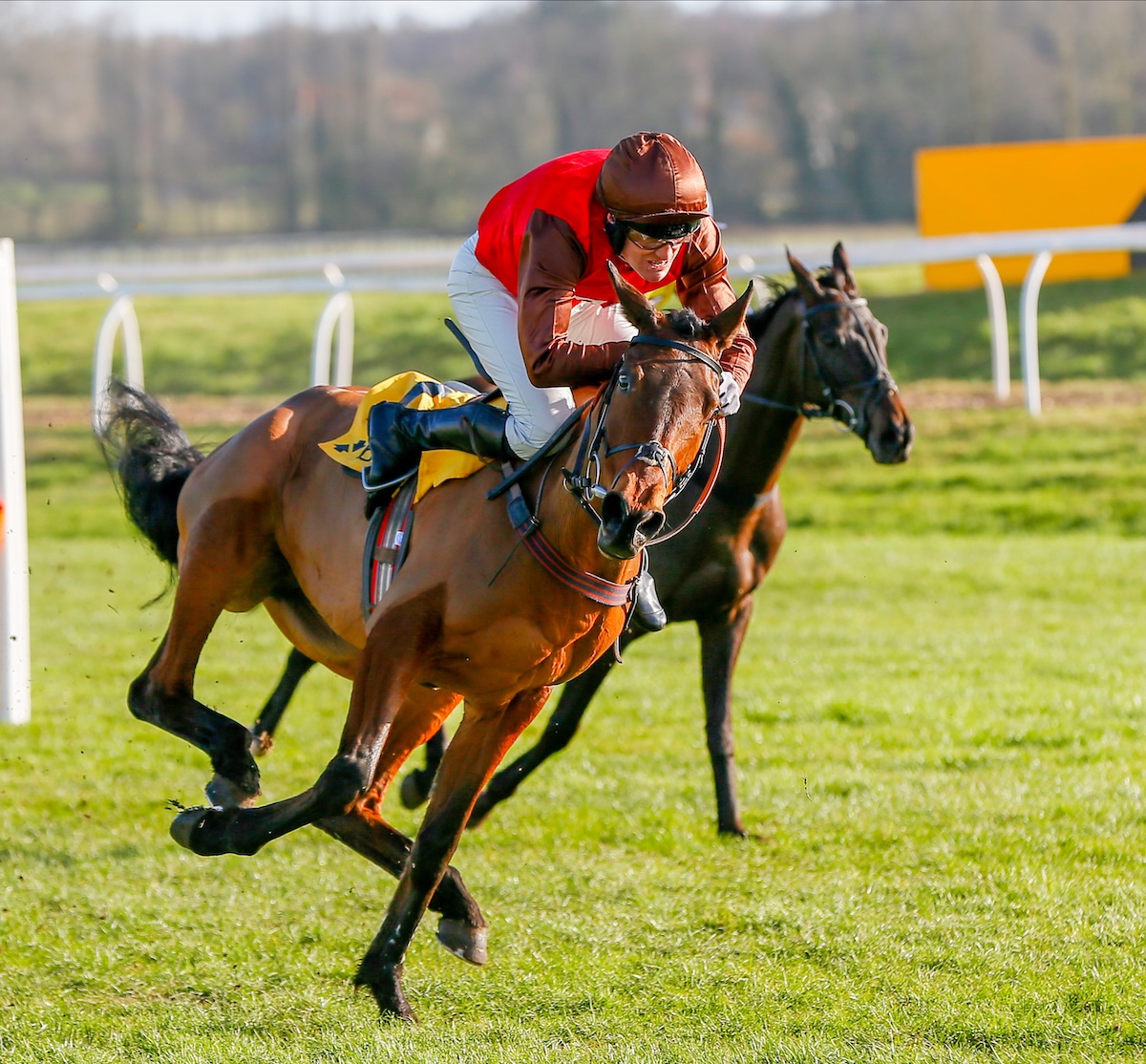 n amateur like me among the top professionals.”
n amateur like me among the top professionals.”
Such acceptance comes through willingly shared peril, and Maxwell can claim the typical laundry list of broken bones and barely subdued pain that jump jockeys consider merely an occupational hazard.
“Touch wood, I’ve been all right,” he says, before reeling off an inventory of agony that includes four spinal fractures, a chestful of broken ribs, sundry punctured lungs, a jaw broken in six places.
“Oh, it goes with the territory,” he adds, the shattered jaw now a broad smile. “That sort of thing just reminds you that you’re alive.”
His fellows in the world of property development know little of this sort of privation, save for the occasional sprained thumb while attempting to close their wallets.
“No-one in the day job really cares what I do at the races,” says Maxwell. “It’s a pity, because horses and racing are perfectly designed to shoot the shit about. Instead, everyone’s more interested in what they’re doing, their own little world.
Completely anonymous
“I was at this industry thing once, and Patrick Mullins happened to be there too. Patrick Mullins, outstanding amateur jump jockey, son of Willie Mullins, all-time great jump trainer, but completely anonymous in this company.
“‘What do you do?’ asks one guy.
“‘Amateur jockey,’ says Patrick.
“‘Won much?’ says the guy.
“‘Few races,’ says Patrick. ‘My dad’s a trainer.’
“‘Oh, does he have many horses? Is he any good? Won any big races?’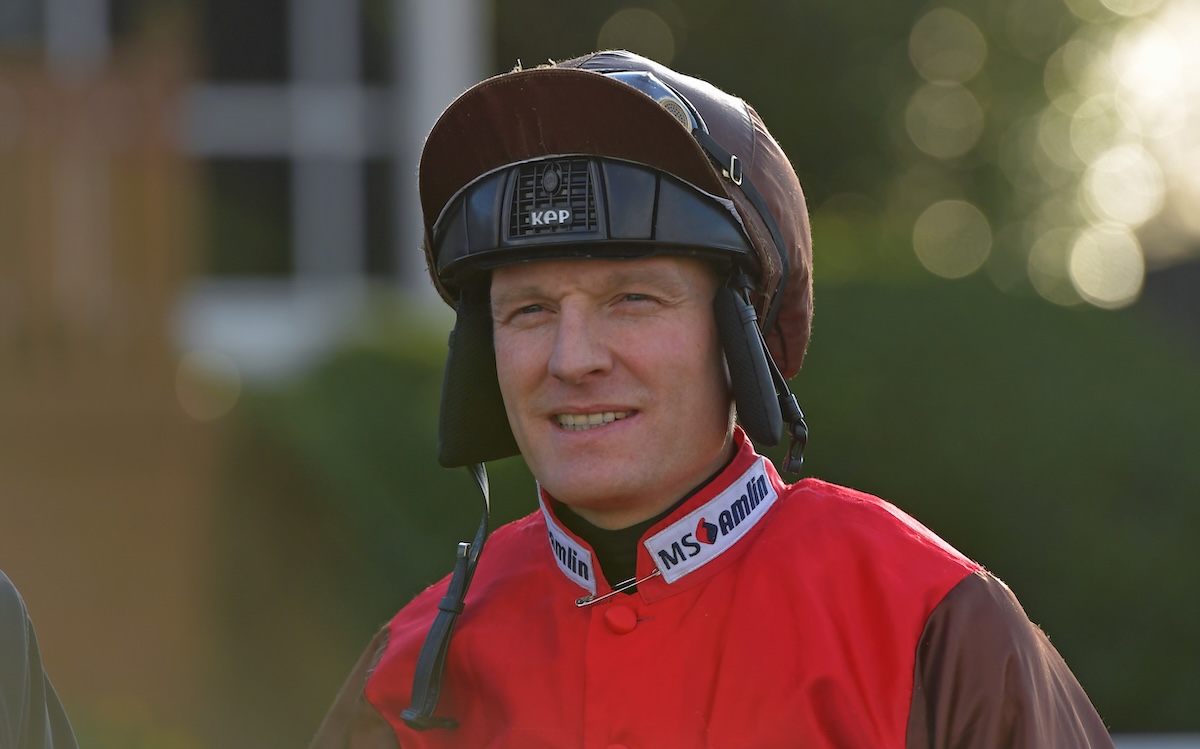
“To which Patrick could have answered: ‘Yes, about 250, yes, pretty good, yes, couple of Grand Nationals, four Cheltenham Gold Cups, y’know.’ Patrick was tickled pink, took it all with good grace. It was hilarious.”
Maxwell could have given similar answers, although not on such vast scale. His father is Northern Ireland trainer and stud owner Jeremy Maxwell, who had 1988 Grand National winner Rhyme ‘N’ Reason as a young horse as well as an unexpected connection to one of the most notorious episodes in racing history, the kidnapping and subsequent killing of 1981 Derby winner Shergar.
Shergar go-between
“I was only four or five but I remember that very well,” says Maxwell. “For some reason my mother Judy became the go-between for the kidnappers – they wouldn’t talk to anyone else. My dad was a trainer in Northern Ireland, that seemed to be the only reason they chose us.
“I remember the world’s media camped out on the lawn, phone calls in the middle of the night. It’s hard to believe, but my parents feature in a seven-part BBC podcast by Vanilla Ice about sport’s strangest crimes. My mother sounds so prim and proper, I suppose that’s how people talked on the phone back then.”
It was never the plan for Maxwell junior to join the family business. He was determined to get out of racing, but just when he had, he found himself pulled back in.
“I had no desire to be a trainer. Growing up, I was more interested in eventing than racing,” he says. “Anyway, the plan was to make some money first before indulging myself in whatever hobby I chose.
Gateway drug
“So I went to Cambridge to read economics, but then had a few rides in local point-to-points and I suppose that became what you’d call my gateway drug.”
Maxwell has been on a horse-related high ever since, and never quite so stratospheric as the day last April when he rode in the Grand National for the first time on his horse Ain’t That A Shame. They finished a staying-on sixth, a mighty effort from horse and rider, but beneath the surface of the bare result lies the angler’s lament of the one that got away.
“For about ten seconds, with two fences to jump, I thought we’d win it,” he says, the very stuff of daydreams, of one of Walter Mitty’s reveries.
“We were coming across the Melling Road alongside the eventual winner, it felt like there was plenty in the tank – and then I looked around and saw how well everyone else was going too.
“But that ten seconds, oh, it was a very good feeling. Awesome. And after the race I got a lovely text from Rachael Blackmore, who’d finished 17th on the same horse the year before, saying I’d done a lot better than she had!”
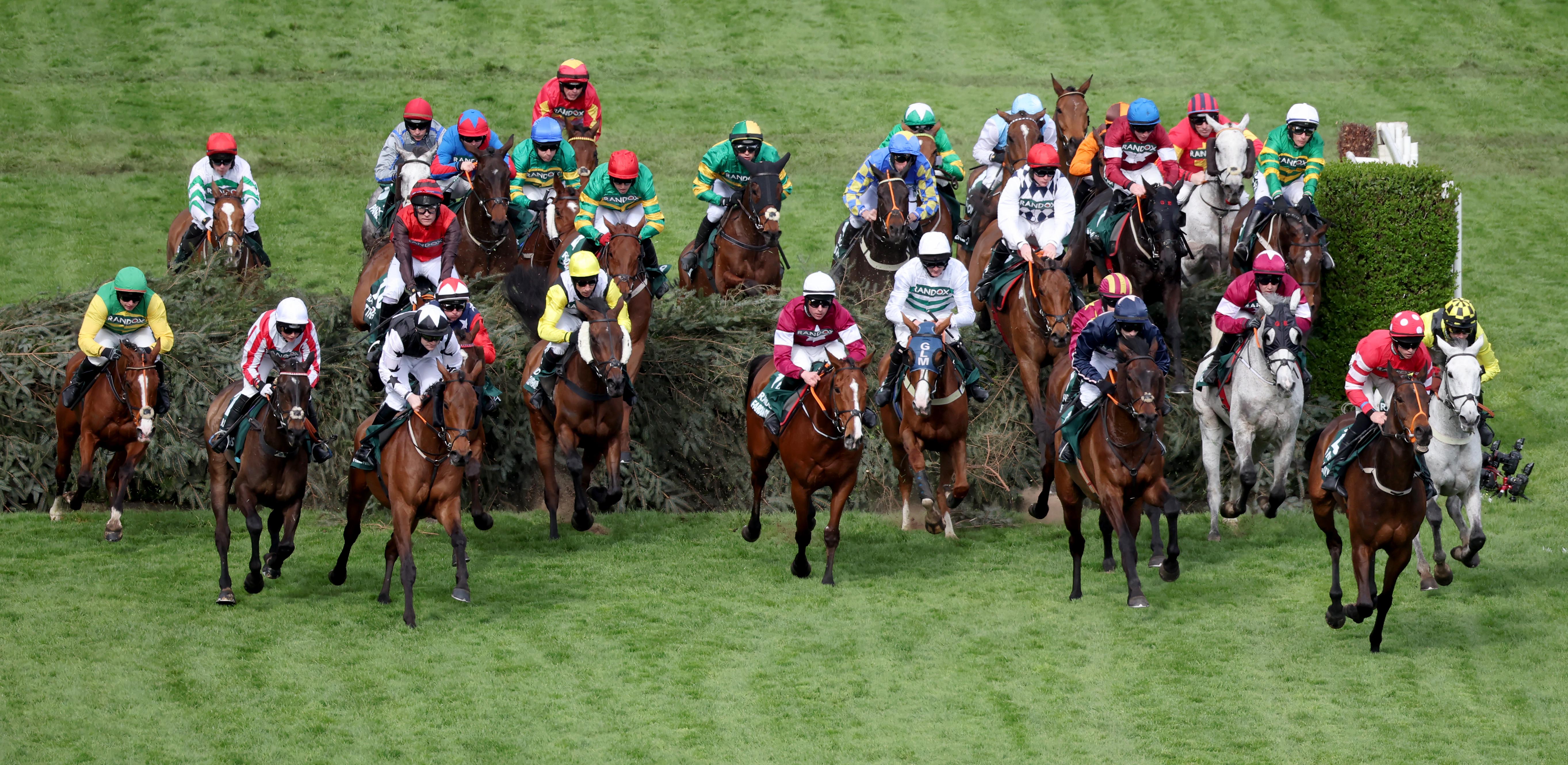 Maxwell is thinking about Aintree again, although the gallant Ain’t That A Shame is on the injury list this season. The entrepreneur in him asks to treat this part of the article as a ‘small ad’, Grand National horse wanted, a vacancy in the stable, chequebook at the ready, so it feels superfluous to quiz Maxwell about specific ambitions that remain unfulfilled as he is so evidently achieving his ambitions one day at a time, one ride at a time.
Maxwell is thinking about Aintree again, although the gallant Ain’t That A Shame is on the injury list this season. The entrepreneur in him asks to treat this part of the article as a ‘small ad’, Grand National horse wanted, a vacancy in the stable, chequebook at the ready, so it feels superfluous to quiz Maxwell about specific ambitions that remain unfulfilled as he is so evidently achieving his ambitions one day at a time, one ride at a time.
Amateur impulse
“As long as it’s fun, I’ll keep doing it,” he says, thumbing his (as yet unbroken) nose at Father Time, encapsulating the amateur impulse.
“Riding out my claim was pretty good but I’m not stopping there. It’s just really fun to be involved – that’s why I’m doing it, not to win the admiration of X [Twitter] users, which will never happen.”
He points to the capability of the current crop of jump jockeys to ride long past the age when their predecessors accepted retirement, on into their 40s, with improved injury management and safety equipment prolonging a career, before admitting with amusement that domestic concerns may take precedence.
“My wife says I have to give up when I start looking ridiculous,” he says. So no real deadline, then. Another ten years?
“As long as I can stay fit – and that’s an absolute yes/no factor – then why would I stop?” he says. “What else would I do? Probably something even more dangerous.
“Life’s short, isn’t it. I can leave all my money to my children or spend a bit more of it while I still can. As Winston Churchill said, success is the ability to go from failure to failure without losing your enthusiasm. I must be a success, then.”
Churchill, a racing man himself, well versed in the slings and arrows of life, would no doubt have agreed with that assessment. Success comes in different guises; this is a different kind of jockey.
Bregawn, the Cheltenham hero who made me fall in love with racing
A life after racing: meet ‘Hugo’, the poster boy for Hong Kong’s impressive aftercare programme
View the latest TRC Global Rankings for horses / jockeys / trainers / sires


